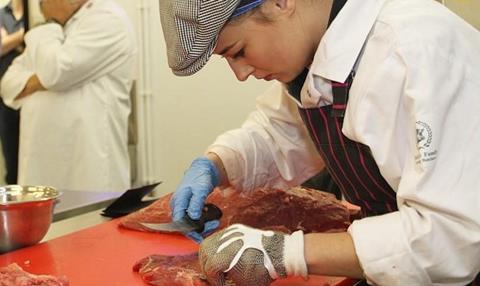Butchers and meat businesses across the UK could be faced with additional labour shortages if they do not prepare their businesses for new immigration rules which are set to come into place following the Brexit transition period, according to an immigration law expert.

The Migration Advisory Committee – which advises the Government on which sectors face a short supply of workers – recommended butchers join the official ‘shortage list’ which, if adopted, would make it easier to recruit from abroad.
However, with big changes to the UK’s immigration policy just weeks away at the end of the Brexit transition period, there could be difficulty as employers may find themselves unable to recruit from overseas to help fill these and other vital positions.
Recent research shows that only 2% of British companies have so far registered to employ overseas workers when the new changes come in on 1st January as free movement ends – which means they will be restricted from access to EU and other foreign skilled personnel after that date.
Yash Dubal, director of London-based A Y & J Solicitors and an expert on immigration and visa law, said: “While it’s positive that the shortage of butchers has been recognized by the MAC, there could still be a crisis ahead for the British meat industry if companies are not prepared for the new immigration rules. Not being able to recruit from abroad next year is going to damage these businesses.”
“While there has been a campaign about the new points-based system, hardly any of it has been aimed at employers to tell them that they need to register if they plan to hire skilled workers from abroad next year.”
Dubal urged businesses to prepare for the new regulations that will come into force at the end of this year.
He added: “It’s shocking to me that so few businesses seem aware of these rules. My advice would be to make preparations now to make sure the UK’s meat sector can thrive. The big worry at this stage is that there’ll be a huge demand at the last minute, creating a backlog of applications.”
UK employers wishing to hire skilled migrants must be registered on the Government visa sponsor scheme when the new immigration rules come into effect. Currently the scheme only applies to workers from outside Europe but after 1st January 2021, all overseas workers will require a visa under the new Points-Based Immigration System.
Home Office data shows just 31,946 businesses are registered to sponsor applicants on Tier 2 visas, the main immigration route for working in the UK. With House of Commons business statistics showing that there are 1.4 million private sector employers in the UK, this means only 2% are in a position to employ new arrivals from next year.
Dubal believes that not enough is being done by the Government to raise awareness and he says that many employers are unaware of the requirement to register.
He added: “While there has been a campaign about the new points-based system, hardly any of it has been aimed at employers to tell them that they need to register if they plan to hire skilled workers from abroad next year.”
Dubal asserted that the current sponsor registration system needs to be overhauled to make it easier and cheaper for British employers to recruit skilled migrants and bridge the skills gap. After 1st January, businesses must pay an Immigration Skill Charge (ISC) of £1,000 per year for each skilled overseas worker they employ.
“The Home Office does not make it easy and there seems to be a policy of discouragement. British companies are facing personnel shortages. The problem can be addressed by hiring from abroad, where there is a huge and highly skilled pool to pick from. It makes good sense to make this hiring process easy.”
This story was originally published on a previous version of the Meat Management website and so there may be some missing images and formatting issues.















